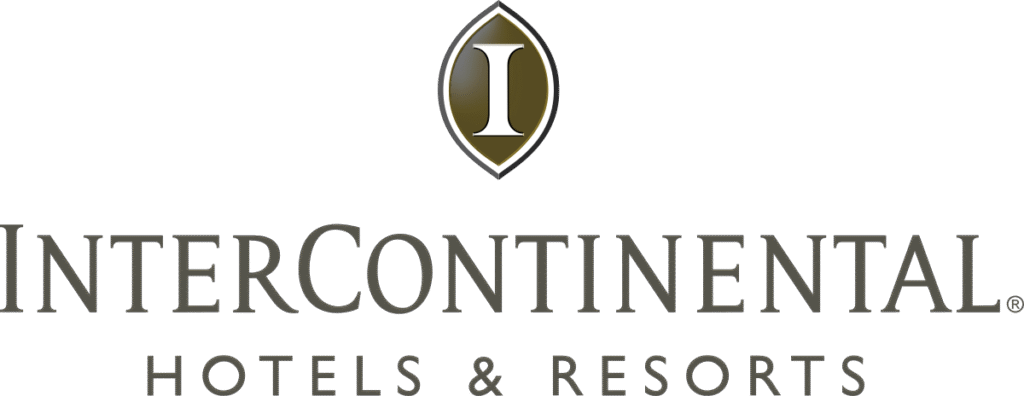Overview
InterContinental Hotels Group (IHG) is a top-tier hospitality company, trading under IHG on the LSE and NYSE. With a portfolio of 19 brands—including Holiday Inn, InterContinental, Crowne Plaza, and Kimpton—it operates over 6,600 hotels globally under an asset-light model (). Originating from Bass Brewery in 1777, IHG became a standalone public company in 2003 (). It is headquartered in Windsor, U.K., and employs around 375,000 people. Its global loyalty programme is one of the industry’s largest, supporting significant recurring revenue.

Most Recent Earnings & Guidance
On 18 February 2025, IHG reported FY 2024 results: revenue rose by 6.5% to $4.92B, net income stood at $628M (versus $750M prior year), and EPS was $2.28, slightly below expectations of $2.29. Full-year room revenue (RevPAR) rose 3.0%, in line with forecasts, and Q1 2025 RevPAR grew 3.3%, supported by strong leisure demand in Europe, Middle East, and East Asia (). The company launched a $900M share buyback and raised its dividend by 10% (). For FY 2025, IHG confirmed guidance while cautioning higher interest costs (~$190–205M vs. $174M est.).
Founding, Products & Structure
IHG traces its hotel roots to Holiday Inn by Bass Brewery in 1952 and acquired InterContinental Hotels in 1998 (). It became an independent entity in April 2003 during a demerger from Six Continents (). The company emphasizes an asset-light franchise and managed model and has grown through strategic acquisitions like Kimpton and Regent (). Its core products span full-service and select-service hotels, extended stays, and luxury resorts, serving both business and leisure segments (). Headquarters are in Windsor, UK with regional hubs in Atlanta, Singapore, and Shanghai ().
Market & Growth Outlook
IHG operates within the global hospitality market, estimated at $4.12T in 2023 and expected to reach $8.37T by 2030 (CAGR ~10.1%) (). The global hotels/resorts/cruise segment is ~USD 803B and expected to grow to $2.21T by 2030 (CAGR ~18.8%) (). In the U.S., the hotel market is $263B (2024), projected to reach $396B by 2030 (CAGR 7.1%) (). Extended-stay, luxury travel, and AI-driven services are key growth vectors ().
Competitors
Major competitors include Marriott, Hilton, Hyatt, and Accor, as well as niche and lifestyle brands like CitizenM and Motto. In the luxury segment, competitors also include Four Seasons and Ritz-Carlton. IHG competes globally in full-service, midscale, and upscale segments.
Competitive Differentiation
IHG stands out with its extensive brand portfolio (from economy to luxury), one of the world’s largest loyalty programmes, and a scalable asset-light franchise model. This enables resilient cash flows, broad distribution, and superior returns, while its digitalisation efforts and loyalty integration drive guest engagement and repeat business.
Management Team
- Elie Wajih Maalouf, CEO since July 2023, with over a decade of IHG leadership roles in the Americas ().
- Michael Glover, CFO since March 2023, 18-year IHG veteran with deep financial and regional expertise ().
- Deanna Oppenheimer, Chair overseeing board governance, previously held senior leadership in global hospitality ().
Five‑Year Financial Performance
From FY 2020–2024, IHG’s revenue grew from ~$4.20B to $4.92B (CAGR ~3.9%), recovering from pandemic lows (). Operating income for 2024 was $1.04B, delivering stable margin performance (). Net income fell from ~$750M in 2023 to $628M in 2024, a ~16% decline due to higher interest costs (). Balance sheet remains solid, with low asset ownership risk due to franchise model, and disciplined shareholder capital return (~$1.1B via dividends and buybacks) ().
Bull Case
- Resilient asset-light model and diversified brand portfolio minimize capital risk and maximize returns.
- Strong loyalty programme drives repeat bookings and direct revenue capture.
- Robust share repurchase and dividend strategy propels capital returns and shareholder yield.
Bear Case
- Sensitivity to macroeconomic downturns, rising interest rates, and lagging demand in key markets like China.
- Competitive pressure from peers accelerating digital innovation and loyalty ecosystems.
- Declining net income and tighter margins due to rising finance expenses.
Analyst Reaction
Following FY 2024 results, analysts responded with:
- Bernstein noted robust revenue and share buyback, but flagged higher interest costs.
- Jefferies acknowledged strong performance but maintained cautious stance due to macro risk.
- FT analysts highlighted stable guidance and maintained positive stance amid resilient RevPAR growth ().

The stock is in a stage 1 consolidation recovery (reversal off a sell off) on the monthly chart. Still consolidating on the weekly chart and in stage 2 bullish markup on the daily chart. The near term movement is to the higher side, but lots of resistance in the $126 – $129 zone means it will likely move lower once it reaches that zone.
